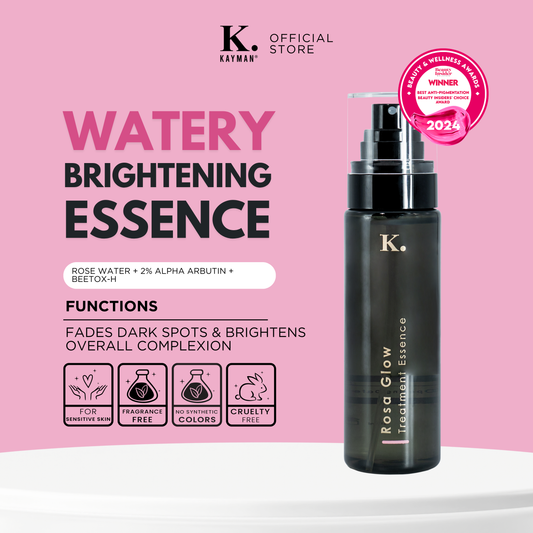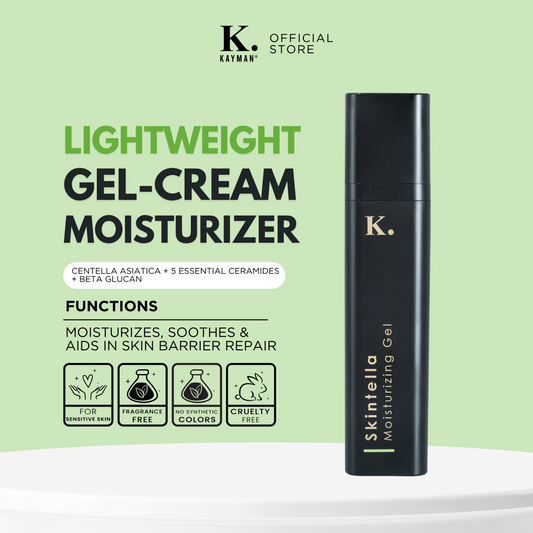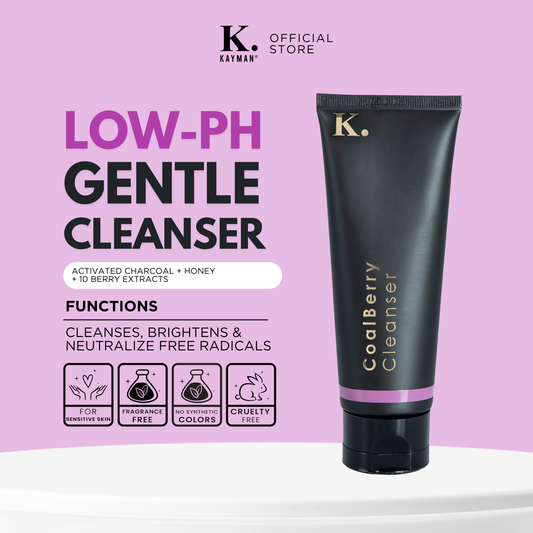HYDRATION 101
Hydrate, hydrate, hydrate! You’ve probably heard this before, whether it’s to tell you to drink more water or hydrate your skin. But what does it really mean?
In skincare, hydrating the skin means using hydrating products to ensure the water level in the skin is adequate to support its function. Hydrating products can come in the form of toners, serums, essences or ampoules. It really doesn’t matter what kind of hydrating product you use — as long as you hydrate!
What does hydration mean in skincare?
Our skin experiences transepidermal water loss (TEWL), which means that water passively evaporates through our skin into our surrounding environment. This happens throughout the day, when we shower, sweat or are exposed to dry air (such as an air conditioned room) for prolonged periods. If our skin is not well hydrated, or if our skin barrier is compromised, TEWL could lead to dehydrated or dry skin, which may then result in other problems such as inflammation, irritation, redness, peeling, or cracked and injured skin.
Hydration in skincare means using topical products applied to the skin, to ensure optimal water content as well as to replenish water loss. In order to avoid dehydrated skin and other problems it may cause, it’s important to ensure our skin is properly hydrated. This can be achieved by using the right hydrating product.
Is hydrating the same as moisturizing?
Although both hydrating and moisturizing aim to ensure the skin is not dry and dehydrated, there are some key differences between the two. Primarily, hydrating is to restore or supply the skin with water, while moisturizing aims to prevent or minimize moisture loss from occurring. For a more in-depth comparison and explanation, see The Differences Between Hydrating & Moisturizing.

Can’t I just drink more water?
As important as it is to drink a good amount of water daily, consuming water alone is unfortunately not enough to maintain the level of hydration in our skin. Since our skin mainly “loses” water through the process of TEWL, which involves water evaporation through the surface of the skin, the most effective way to replenish and maintain water content in the skin is by applying hydrating products topically.
For best results, both practices should go hand in hand — drinking enough water and using hydrating products!
What do hydrating products do for my skin?
Now that we’ve established the significance of using hydrating products, let’s see what benefits await when you incorporate them into your routine!
- Improves overall skin appearance. When your skin is well-hydrated, it appears luminous, plump and dewy, giving you the appearance of healthy, glowing skin. Hydrating properly can also make your skin appear brighter, especially if you are prone to dull skin caused by dehydration or dryness, and even improve the appearance of enlarged pores and wrinkles.
- Supports optimal skin barrier function. Like the rest of our organs, the barrier of our skin also requires proper hydration so that it can maintain its function as the first line of defence for our body. Dehydrated skin may lead to a compromised skin barrier, which can cause discomfort and in worse cases, peeling or even cracking of the skin. It’s important to keep the skin barrier intact and using hydrating products is one way to ensure our barrier is healthy and in the best shape.
- Regulates oil production. Did you know that oily skin can be a symptom of dehydration? When our skin is dehydrated, it may end up producing more oil than usual to compensate for the dehydration. This can result in an oily complexion. Using hydrating products can remedy oiliness, by ensuring the skin is properly hydrated and therefore regulating oil production.
- Aids in acne control. When our skin produces excess oil due to dehydration, that oil may clog pores and cause acne. Incorporating an appropriate hydrating product into your routine will help regulate oil production, thus controlling acne in the process. Well-hydrated skin also keeps inflammation and irritation at bay, which also contribute to acne prevention.
- Improves makeup application and performance. When your skin is well hydrated, it provides a good, smooth base for makeup. This will help your makeup apply more evenly and easily, as well as help it stay in place. Hydrated skin can make your makeup look and feel better, avoiding clumping or patchiness and lasting longer!
Continue to Part II.












